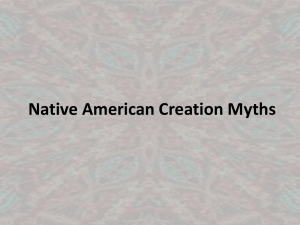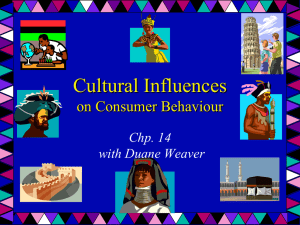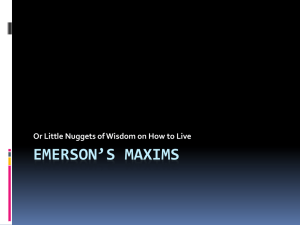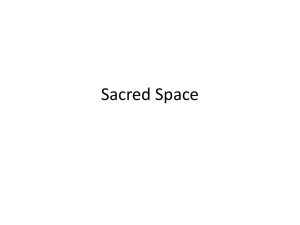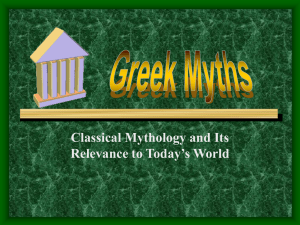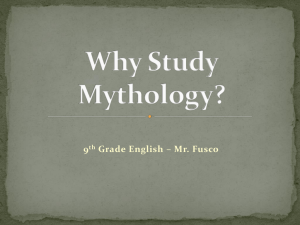Eliade Powerpoint
advertisement
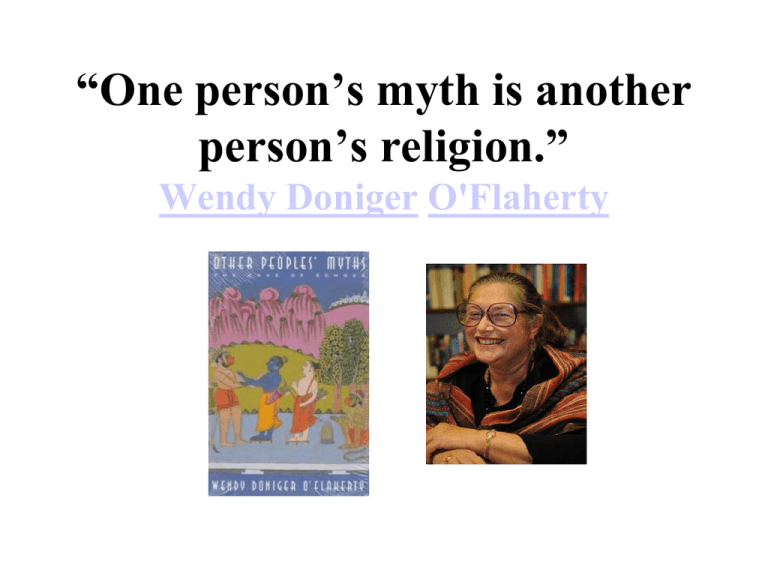
“One person’s myth is another person’s religion.” Wendy Doniger O'Flaherty “One person’s myth is another person’s religion.” Wendy Doniger O'Flaherty •To what extent is one’ person’s sacred place profane place? •Are there any places which are universally sacred? Myths as Products of the Mind Individual Mind Sigmund Freud (1856-1939) id / ego / superego dream world of the individual Myths as Products of the Mind Individual Mind Sigmund Freud (1856-1939) id / ego / superego dream world of the individual •Are sacred places part of our individual dream world? •I.e., do they spring from our unconscious? Myths as Products of the Mind Collective Mind Carl Jung (1875-1961) dream world of society collective unconscious archetypes: recurring myths characters, situations and events archetype as primal form or pattern from which all other versions are derived Myths as Products of the Mind Collective Mind Carl Jung (1875-1961) dream world of society collective unconscious archetypes: recurring myths characters, situations and events archetype as primal form or pattern from which all other versions are derived Or does our sense of sacred space spring from our collective unconscious? Students of Jung Ernst Cassirer (1874-1975) Mircea Eliade (1907-1986) Victor Turner (1920-1983) Joseph Campbell (1904-1987) Mircea Eliade (1907-1986) Eliade's analysis of religion assumes the existence of "the sacred" as the object of worship of religious humanity. Myths reflect a creative era, a sacred time, a vanished epoch of unique holiness. Mircea Eliade (1907-1986) Eliade's analysis of religion assumes the existence of "the sacred" as the object of worship of religious humanity. Myths reflect a creative era, a sacred time, a vanished epoch of unique holiness. To what extent does our sense of sacred space reflect our understanding of, yearning for a creative era, sacred time, vanished epoch of holinesss?

